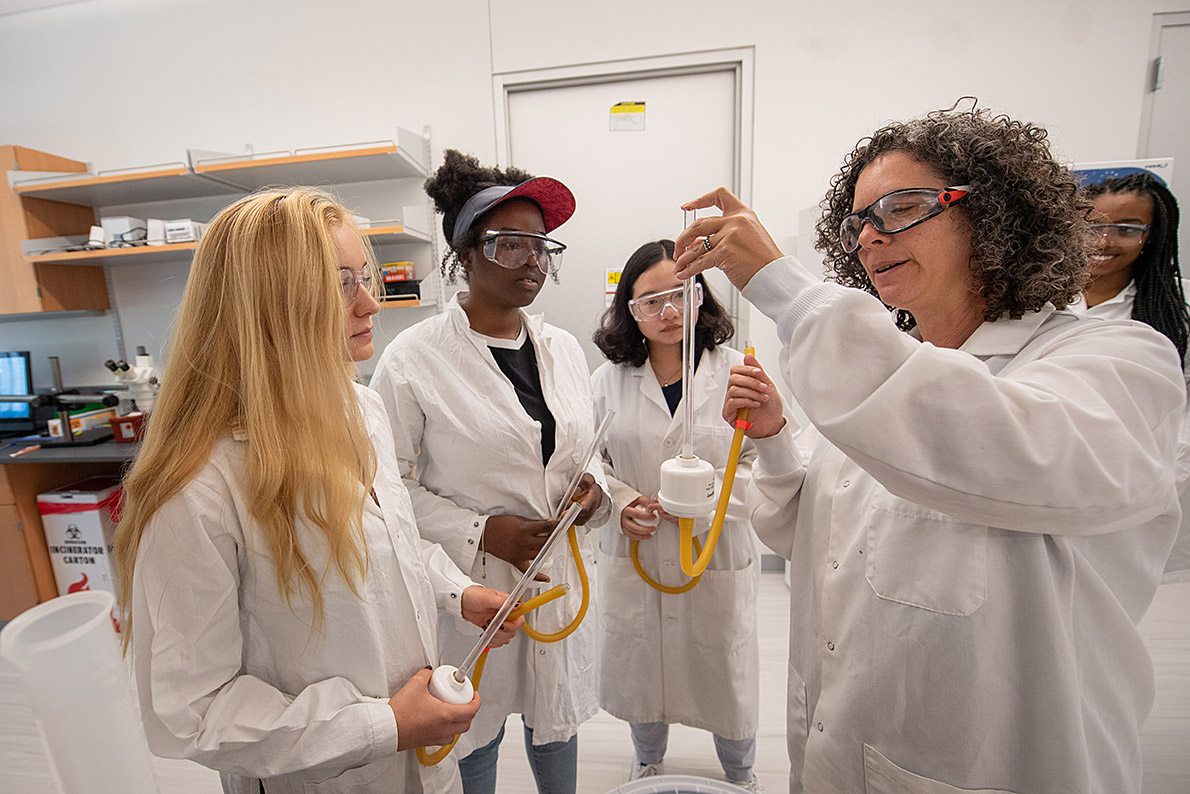
NIH Awards $325,000 Grant for Wooster Professor’s Research That Could Impact Mosquito Control

WOOSTER, Ohio – The National Institutes of Health (NIH) awarded The College of Wooster a grant of approximately $325,000 to research the function of a protein that male mosquitoes transfer to females in their seminal fluid in a species that transmits viruses, including dengue, Zika, chikungunya, and yellow fever, the NIH recently announced. The principal investigator of the grant is Laura Sirot, associate professor of biology.
The specific protein is the adipokinetic hormone (AKH), which serves as an important regulator of physiology and behavior in insects, but interestingly, it is not found in the seminal fluid of any other animal. Seminal fluid proteins have a profound impact on the blood feeding, egg production, and longevity of female Aedes aegypti mosquitoes, according to Sirot, who hopes to be able to identify potential new targets for mosquito control with this study.
“With the tremendous global impact of mosquito-borne diseases on human health, new approaches for mosquito control are desperately needed. The diseases caused by these mosquito-transmitted viruses are estimated to affect hundreds of millions of people worldwide and to kill tens of thousands annually,” further explained Sirot. “Although there has been progress on vaccine development, there are no cures for these diseases. Therefore, control efforts focused on preventing bites and meeting the demand for alternative, novel insecticides, instead of existing insecticides that mosquitoes may have become resistant to, has spurred this study.”
Based on previous studies of AKH’s effects across a range of other insects, Sirot hypothesizes that “AKH is important in regulating the post-mating changes in Aedes aegypti females.” Thus, the investigation will start by testing the effect of eliminating AKH on female post-mating responses.
Noteworthy, the NIH grant will enable Wooster’s acclaimed mentored and collaborative research to take place across the academic programs of biology, neuroscience, and biochemistry and molecular biology. “This funding will expose our students to a wider range of novel approaches and methodologies. It will strengthen the research experiences and collaborative opportunities across the life sciences at Wooster and prepare students to take integrative multi-disciplinary approaches to problem solving in the careers they pursue after graduation,” said Sirot.
Posted in News on August 27, 2019.
Related Posts
Related Areas of Study
Biology
Explore molecular and cellular biology, ecology and more with top faculty and access to extensive lab facilities.
Major Minor

